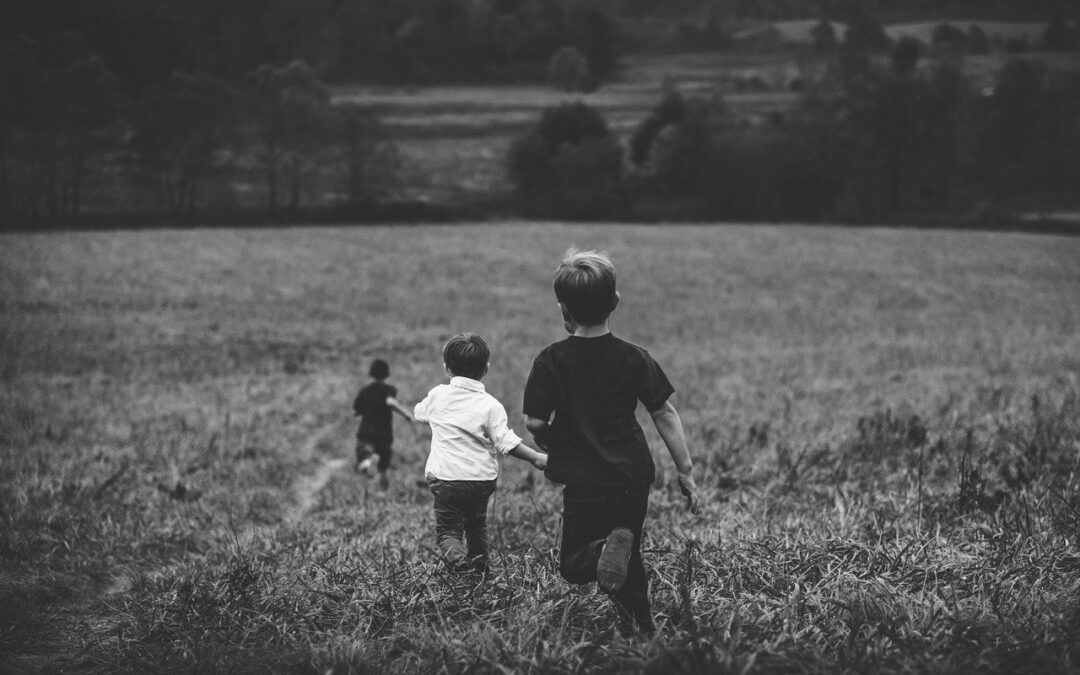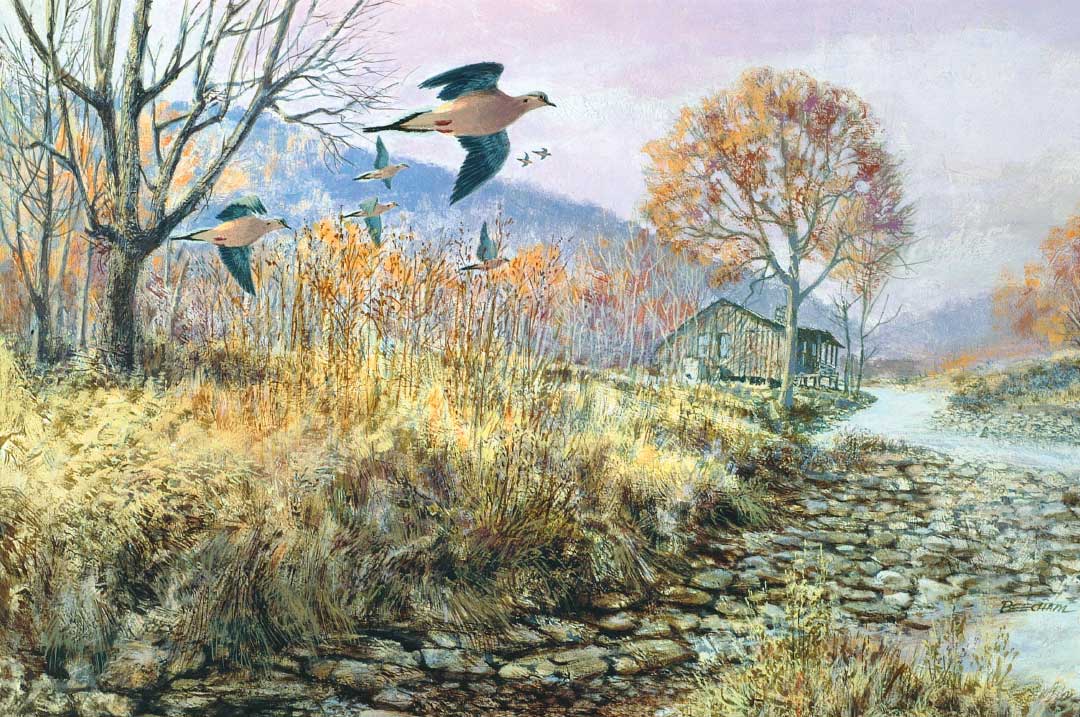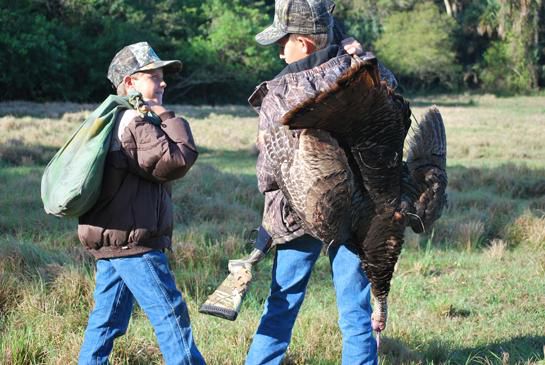I would contend that boyhood in yesteryear, when most pursuits involved being outdoors, had it all over today’s technology-driven world.
Increasingly with the passage of time I find myself reflecting on things I did as a youngster. That’s the purview of age, and as that grand old poet laureate of the bobwhite, Havilah Babcock, rightly wrote, “Boyhood improves with age, and the more remote it is the nicer boyhood seems to become.” There’s no arguing with his perspective, but I would contend that boyhood in yesteryear, when most pursuits involved being outdoors, had it all over today’s technology-driven world.
In a book I recently completed, A Smokies Boyhood I devoted a chapter to looking back on youthful pursuits through asking a lengthy series of questions: “Did you ever?” Most of my recreational activities were simple, inexpensive (usually free), and relied more on youthful ingenuity, along with a good dose of suggestions from my paternal grandfather and others, than any of the store-bought junk – video games, all sorts of technological gadgets and electronic gizmos – which pass for entertainment with today’s kids. Here’s a sampling of longing looks backward with the emphasis on outdoor pursuits. My studious guess is that the older the reader the greater the number of these experiences he will have sampled and savored as well. If nothing else, I hope this laundry list of “doings” from boyhood will take you back to your own fond treasure house of the joys of youth.
Did you ever…
*Play war—with imaginary armaments such as grenades which were maypops (passion flower fruit), white pine cones, or magnolia seed pods; homemade bows-and-arrows; forts built from pines or other trees you had cut; sling shots; and the like.
*Trap cottontails with box traps known as rabbit gums.
*Convince a visiting cousin or some poor city slicker soul to take a bite of a persimmon which had turned orange but was still a long way from being ripe.
*Enjoy the indescribable delight of a properly made permission pudding, something as delicious as a green persimmon is disgusting.
*Shoot songbirds with your trust BB gun, knowing that doing so risked a serious dose of hickory tea should you be caught in the act.
*Buy fish hooks, shotgun shells, or .22 cartridges individually—all could be purchased that way in the 1950s. Fish hooks and .22 shells ran a penny apiece while shotgun shells were eight cents each or a baker’s dozen for a dollar.
*Come across an old still (or maybe an active one) while wandering through the woods. On a personal note, I once got too close to one which was clearly in operation. A couple of rifle shots through the trees overhead, along with a distant shout, “you boys don’t need to be here,” conveyed an all-too-clear message.
*Get a good dose of hickory tea. Or maybe two doses—one at school and a second one when your parents learned of your transgressions. I must admit, back in the days when corporal punishment as part of the educational process was not only accepted but on the part of most parents actually appreciated, that happened to yours truly on more than one occasion. Worst of all, I had to cut the instrument used in my punishment.
*Hear grown folks talk about an elderly family member who was a bit “quare,” “not quite right,” a bit “addled,” or “poorly.” This was a standard way of describing dementia.
*Listen to any of the grand old radio programs such as “Gunsmoke,” “The Lone Ranger,” or “Amos and Andy.”
*Make a particular point of listening to programming associated with the Grand Old Opry or Louisiana Hayride.
*Browse dreamily through the outdoor gear section of the Sears & Roebuck catalog.
*Live in or visit a house which did not have electricity.
*Make the cold trek to an outhouse on a winter night.
*Watch or participate in a turkey shoot.
*Go on a ‘coon hunt and enjoy the hallelujah chorus of a pack of dogs on a hot trail or the tales of old men harkening back with longing to their respective “dogs of a lifetime.”
*Go “sanging” (gather ginseng for sale).
*Go “gallacking” (gather galax leaves to use in wreathes or as table decoration, especially at Christmas).
*Find a case holding praying mantis eggs while out hunting in the winter and bring it home.
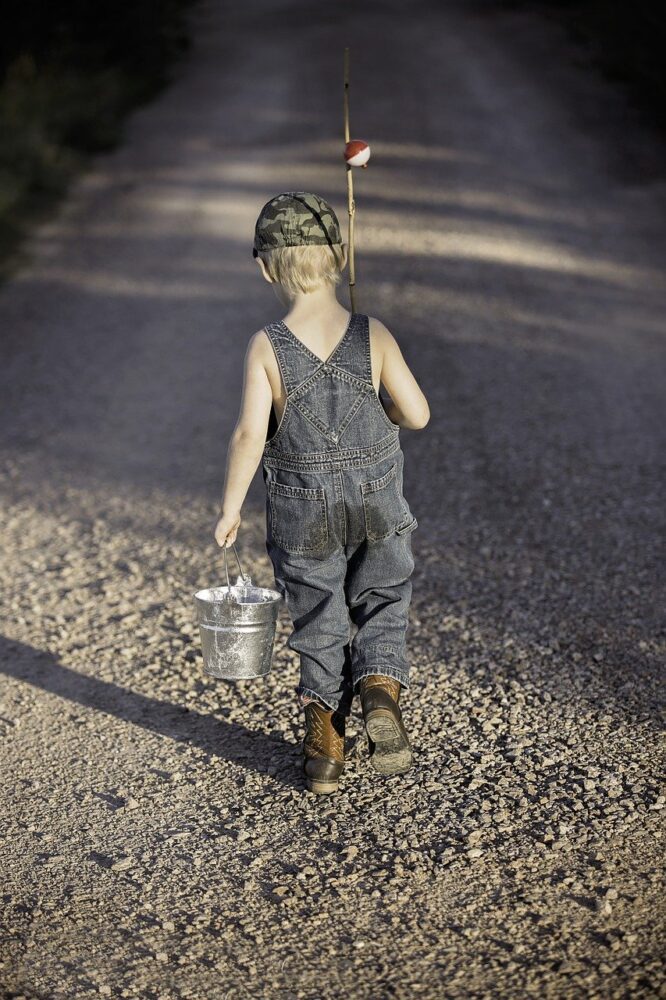 *Skate on leather-bottomed shoes across frozen ponds or places where water had frozen on a sidewalk or driveway.
*Skate on leather-bottomed shoes across frozen ponds or places where water had frozen on a sidewalk or driveway.
*Make your own fishing outfit from river cane you had cut, with the lead covering of roofing nails used for sinkers and a bottle cork for a float.
*Make slingshots from scratch and buy marbles as prime ammo for them.
*Split kindling from rich pine to use as a fire starter and carry a piece of it in your hunting coat to make starting a lunchtime fire simple when out rabbit hunting on a cold day.
*Lay the kindling each night in a wood-burning stove for cooking breakfast the next morning.
*Participate in hog killing and butchering.
*”Blow” an egg and refill it with hot sauce to deal with an egg-suckin’ dog or an egg-eatin’ snake.
*Take part in a rat killin’ at the family corn crib.
*Knock down a hornet or wasp nest after smoking it or dig up a yellow jacket nest after pouring gasoline down it—all to obtain some prime fish bait.
*Trap ‘coons, muskrats, mink, ‘possums, and fox for their fur, running the trap line at dawn before getting ready to head off to school.
*Go skinny-dipping in your favorite swimming hole.
*Seine minnows for fish bait.
*Catch spring lizards (salamanders) to sell to the local bait shop.
*Go night crawler hunting in the evening after a warm spring rain.
*Get a bad case of chiggers or poison ivy or worse still, know some poor soul who used the latter as ersatz toilet tissue.
*Find an abandoned home place in while out hunting in the fall and enjoy a field snack from fruit on old apple or pear trees.
*Eat a hunter’s lunch of tinned sardines or Vienna sausage with saltine crackers.
*Finish off that delectable treat with a home-made fried pie.
*Drink the finest spring water imaginable from some remote seep.
*Listen to someone recite wonderfully lyrical poems from the likes of Rudyard Kipling or Robert Service around a backwoods campfire.
*Hear a recitation of Stephen Vincent Benet’s “The Mountain Whippoorwill” and identify with half the lines in the poem.
*Run a trot line, throw line, limb line, or jug fish for catfish.
*Eat fresh-made pork sausage or fried tenderloin for breakfast, amply buttressed by cathead biscuits anointed with new run molasses, before heading out to hunt squirrels.
*Buy loose candy by the piece and carry a few sticks in your Duxbak hunting coat just in case you got peckish.
*Pick up ripe honey locust pods from the ground and eat the meat which surrounds the seeds.
*Find a prime patch of hazelnut bushes and gather the delicious nuts.
*Gather fox grapes to make jelly.
*Swing from fall grape vines so thick you could barely get your hands around them.
*Find a patch of ripe pawpaws and enjoyed a woodland feast.
*Eat the sweet-sour flesh surrounding the seeds of maypop fruit.
*Feast on trout, ramps, and branch lettuce on the opening day of trout season.
*Mark a prime stand of black walnut trees with the dual purpose of hunting squirrels there come fall and gathering nuts for home use when they fell.
These are but a sampling of the experiences which come to my admittedly disordered mind as I look back, with longing, to a world I can only hope we have not completely lost. If these are pleasures you enjoyed as a youngster, you were truly blessed.
NOTE: Jim Casada is the longtime Editor at Large for Sporting Classics. His next book, from which this piece is excerpted, A Smokies Boyhood: Mountain Memories, Musings, and More, will appear this fall.
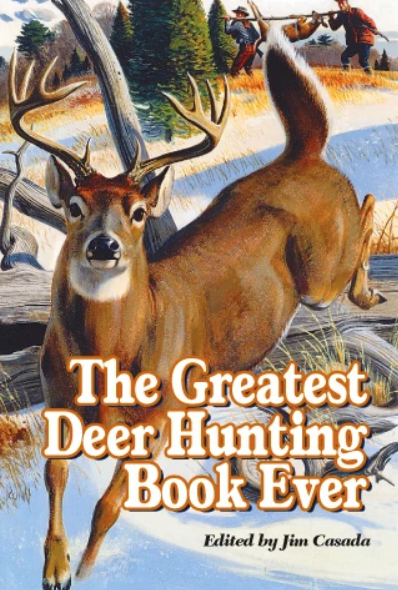 There’s something about the deer-hunting experience, indefinable yet undeniable, which lends itself to the telling of exciting tales. This book, edited by Jim Casada, offers abundant examples of the manner in which the quest for whitetails extends beyond the field to the comfort of the fireside. It includes more than 40 sagas which stir the soul, tickle the funny bone, or transport the reader to scenes of grandeur and moments of glory.
There’s something about the deer-hunting experience, indefinable yet undeniable, which lends itself to the telling of exciting tales. This book, edited by Jim Casada, offers abundant examples of the manner in which the quest for whitetails extends beyond the field to the comfort of the fireside. It includes more than 40 sagas which stir the soul, tickle the funny bone, or transport the reader to scenes of grandeur and moments of glory.
On these pages is a stellar lineup featuring some of the greatest names in American sporting letters. There’s Nobel and Pulitzer prize-winning William Faulkner, the incomparable Robert Ruark in company with his “Old Man,” Archibald Rutledge, perhaps our most prolific teller of whitetail tales, genial Gene Hill, legendary Jack O’Connor, Gordon MacQuarrie and many others. Buy Now

